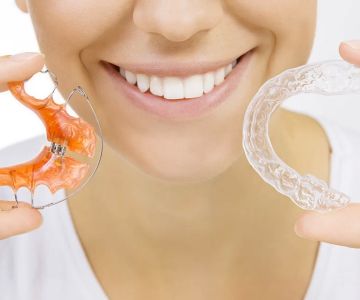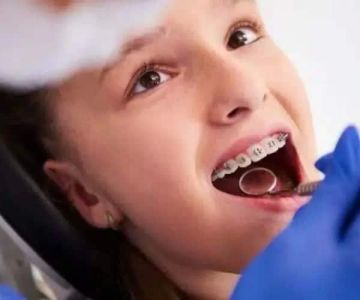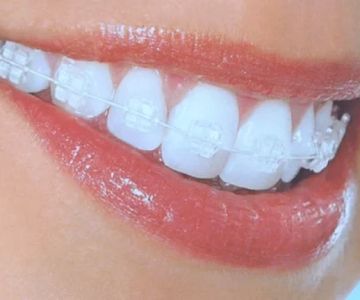Undergoing orthodontic treatment, such as wearing braces, is a significant step towards achieving a healthier, more aligned smile. However, maintaining oral hygiene and cleanliness during this period is crucial to prevent potential dental issues and ensure effective treatment outcomes. With brackets and wires covering your teeth, it becomes more challenging to keep your mouth clean, making it essential to adapt your oral hygiene routine. This article will explore practical strategies and important considerations for maintaining oral hygiene while wearing braces or undergoing other orthodontic treatments in the United States, where advanced orthodontic options are widely accessible.
Understanding the Importance of Oral Hygiene During Orthodontic Treatment
Effective oral hygiene during orthodontic treatment is paramount to prevent common dental issues such as cavities, gum disease, and decalcification. The intricate design of braces can trap food particles and plaque, increasing the risk of these dental problems. This section will delve into why adhering to a stringent oral care routine is vital and what risks are involved if neglected. Notably, studies indicate that up to 50% of patients undergoing orthodontic treatment experience minor to moderate gingivitis due to inadequate oral hygiene practices. Therefore, understanding and addressing these risks are crucial steps in ensuring the success of your orthodontic journey.
Adapting Your Oral Hygiene Routine for Braces
Brushing and flossing require extra attention and new techniques when you have braces. To effectively remove food debris and plaque, it's crucial to brush at least three times a day, preferably after each meal. Specially designed orthodontic toothbrushes or electric toothbrushes with soft bristles are recommended to reach around brackets and wires. Additionally, flossing is critical but can be challenging; using a floss threader or orthodontic flosser can simplify this process. According to the American Dental Association, using an interdental brush can further help clean between teeth and around brackets, promoting comprehensive oral cleanliness.
The Role of Diet in Oral Hygiene During Orthodontic Care
Your diet significantly impacts your oral hygiene while undergoing orthodontic treatment. Certain foods can damage braces or contribute to tooth decay, so it's advisable to avoid sticky, hard, or sugary foods. Instead, focus on a balanced diet incorporating fruits, vegetables, lean proteins, and dairy to support overall dental health. Drinking plenty of water helps rinse food particles and maintain oral hydration. As per a report by the Centers for Disease Control and Prevention, maintaining a healthy diet can mitigate oral health risks and complement orthodontic progress.
Regular Dental Visits and Professional Cleanings
Regular check-ups and cleanings are integral to maintaining oral hygiene during orthodontic treatment. Visits to your orthodontist should not replace routine dental appointments, as both professionals play distinct roles in your dental care. Professional cleanings help remove plaque and tartar build-up that you might miss in daily brushing and flossing. These visits also allow your dentist to monitor for potential oral health issues that might arise due to orthodontic appliances, ensuring they are addressed promptly. Aligning with the Dentistry Toothtruth website, it's recommended to schedule dental cleanings every six months or as advised by your dentist.
Utilizing Additional Oral Hygiene Tools
Several supplementary tools can aid in maintaining optimal oral hygiene during orthodontic treatment. Mouthwash with fluoride and antimicrobial properties can help strengthen tooth enamel and reduce bacteria in hard-to-reach areas. Water flossers have gained popularity as an effective method for cleaning around orthodontic appliances, offering a gentle yet thorough way to dislodge food and plaque. By integrating these tools into your daily routine, you enhance your oral hygiene efforts, promoting healthier teeth and gums throughout your treatment period.
In conclusion, maintaining oral hygiene and cleanliness during orthodontic treatment is essential for preserving oral health and ensuring the effectiveness of your treatment. By adapting your oral care routine, managing your diet, attending regular dental visits, and utilizing additional hygiene tools, you can significantly reduce the risk of dental complications. It is crucial to prioritize these practices consistently, as they play a significant role in achieving the desired outcome of your orthodontic journey. Implementing these strategies will not only enhance your treatment experience but also safeguard your dental health long after the braces are removed.




 Westgate Dental Arts
Westgate Dental Arts Coventry Family Dental
Coventry Family Dental Familia Dental
Familia Dental Dr. Daniel S. Fife, DDS
Dr. Daniel S. Fife, DDS Dentistry At Suburban Square: Michael I. Wollock, DMD
Dentistry At Suburban Square: Michael I. Wollock, DMD Comfort Care Dental
Comfort Care Dental The Importance of Oral Health Education During Pregnancy for a Healthy Pregnancy
The Importance of Oral Health Education During Pregnancy for a Healthy Pregnancy Why Skipping Dental Checkups Can Lead to Bigger Oral Health Problems
Why Skipping Dental Checkups Can Lead to Bigger Oral Health Problems Best Tips for Brushing Your Teeth Properly for Healthy Gums: Essential Techniques for Oral Health
Best Tips for Brushing Your Teeth Properly for Healthy Gums: Essential Techniques for Oral Health Advantages of Porcelain Dental Restorations
Advantages of Porcelain Dental Restorations How Can Diabetes Cause Tooth and Gum Problems? Preventing and Managing Oral Health Issues
How Can Diabetes Cause Tooth and Gum Problems? Preventing and Managing Oral Health Issues Healthy Habits for Promoting Good Oral Health and Hygiene: Tips for a Healthy Smile
Healthy Habits for Promoting Good Oral Health and Hygiene: Tips for a Healthy Smile